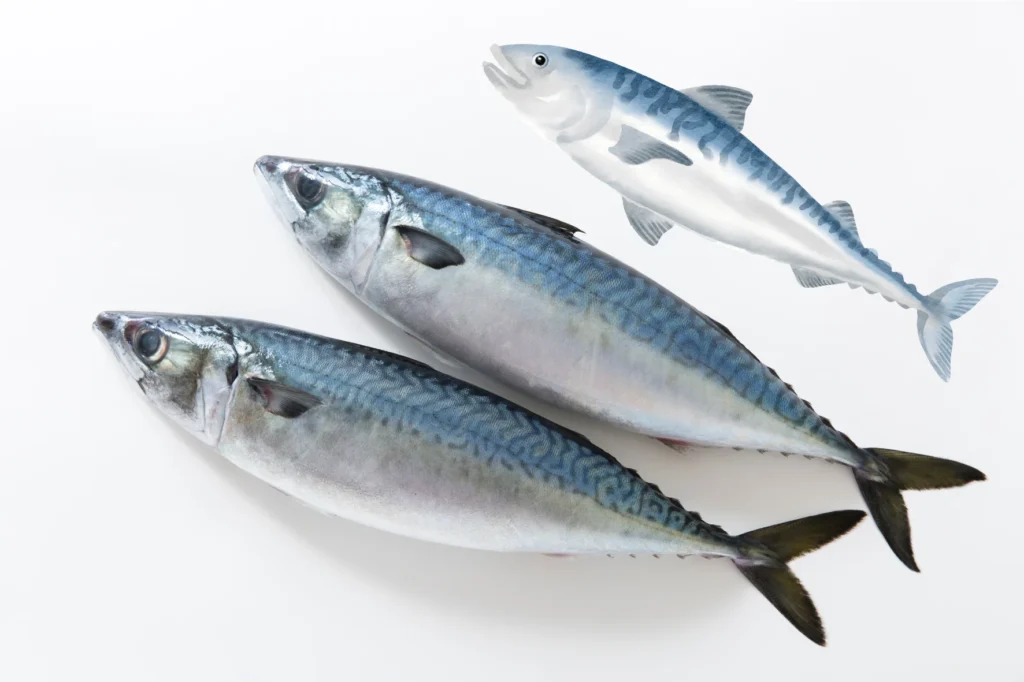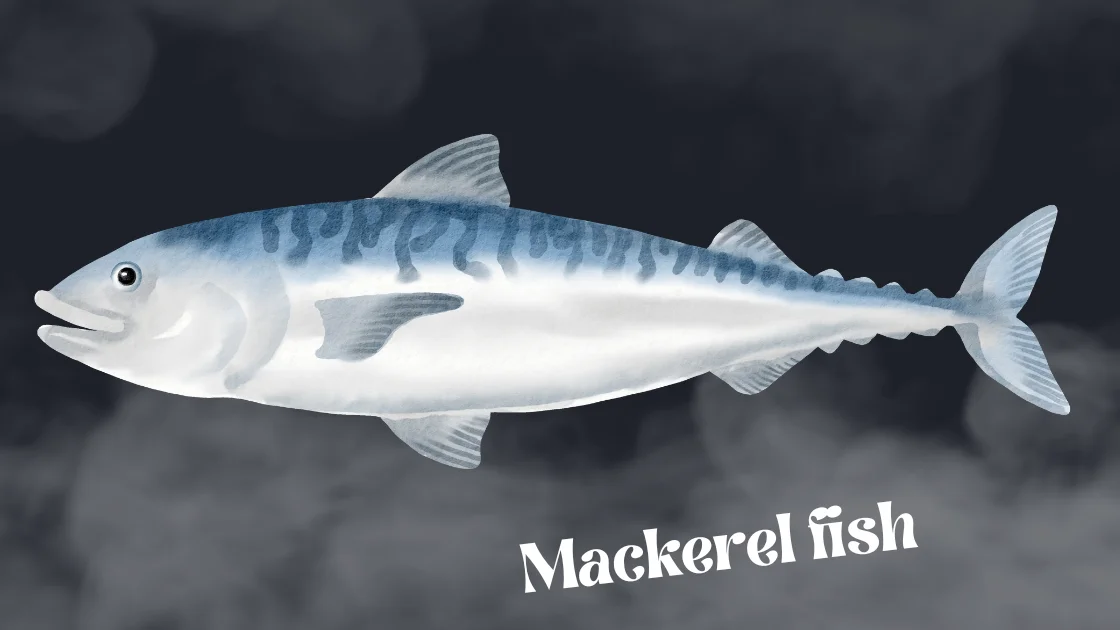Mackerel is a versatile and tasty game fish favored by nutritionists worldwide for its unique flavor and nutritional profile. Scomber are found in oceans around the world and are known for their attractive appearance with their smooth, long bodies and vibrant blue and silver scales. In addition to its culinary products, Scomber plays an important role in marine ecosystems and supports employment in fishing communities worldwide. We explore the wonderful world of mackerel, its ecological importance, social benefits, culinary uses and conservation challenges.
The Mackerel Family
The term “mackerel” includes species common to fishermen, including Atlantic mackerel, Pacific mackerel and Spanish Scomber. These predators are known for their speed, agility and docile behavior, which allows them to maintain a strategic distance from predators and pursue smaller prey.
Scomber scombrus are transient hunters, often traveling long distances in search of food and suitable land. They live in coastal and open ocean waters and are known to adapt to both temperate and tropical climates.
The Marvelous World of Salmon: A Profound Jump into the Notorious Fish
Master the Art of Blackened Fish: A Mouthwatering Guide to Flavorful Seafood Delights
Mackerel’s Part in the Ecosystem
Mackerel plays an important role in marine ecosystems as both predator and prey. As predators, Scomber scombrus feed on small fish, shellfish and minnows, which affects the population of these species. As prey, mackerel are an important source of nutrients for large fishers, complex marine life and seabirds.
The reproductive behavior and abundance of Scomber make them an important part of marine nutrition. Its proximity enhances the overall health and adaptability of marine ecosystems.
Health Benefits
Mackerel is a health powerhouse with widely touted health benefits. It is rich in high-quality protein, omega-3 fatty acids and essential vitamins and minerals:
Heart health: The omega-3 fatty acids in mackerel are known to improve heart health by reducing anxiety, lowering blood pressure and increasing cholesterol levels.
Brain health: The high levels of omega-3 in Scomber may support brain health and cognitive function, reducing the chance of age-related cognitive decline.
Bone health: Scomber is a good source of vitamin D, which plays an important role in keeping bones and teeth strong.
Boosts Immunity: Angelica is rich in minerals like Vitamin B12 and Selenium which strengthen the immune system.
Skin health: Omega-3 fatty acids help keep skin healthy by reducing inflammation and increasing moisture.
Culinary Delights
Mackerel is a versatile angler suitable for a variety of food arrangements. Its rich and flavorful essence can be flame-grilled, baked, pickled or braised, making it a favorite in cuisines around the world. Here are some popular Scomber recipes:
Grilled Mackerel: Flame-grilled Scomber brings out its traditional flavor while developing a hard, crispy crust. Add salt, pepper and your favorite herbs to the dong quai and your meal is complete.
Smoked Mackerel: Smoked Scomber is a delicious dish with a rich, smoky flavor. It can be enjoyed alone or used in dishes such as mixed vegetable and meat sauces.
Marinated Mackerel: Marinated Scomber is rich in freshness, color and delicious taste. Salted Scomber is a popular choice in Scandinavian and Eastern European cuisine.
Mackerel Curry: The rich flavor of Scomber goes well with the flavor of curry dishes. This aromatic Scomber curry is a healthy and satisfying meal.
Mackerel Sushi: Scomber sushi or “saba” is a traditional Japanese dish consisting of marinated Scomber served with rice. Sushi lovers love its unique taste.

Conservation Challenges
Like many marine species, mackerel faces conservation challenges due to overfishing, environmental pollution and climate change. These threats have led to declines in Scomber populations in some areas, raising concerns about supporting Scomber fisheries.
Efforts to save king fish include possible fishing restrictions, such as catch limits and periodic closures, to allow stocks to recover. In addition, supporting marine conservation activities and promoting viable fisheries management options can help protect and their habitats for future generations.
Supporting Maintainable
As customers, we have an important role to play in supporting sustainable Scomber honey. Look for fish species that are certified by organizations such as the Marine Stewardship Council (MSC), which ensure that the Scomber fish comes from responsibly managed fisheries.
Another option is to look for locally sourced Scomber from small-scale fisheries, which often use sustainable fishing strategies. By making smart choices, we can help protect king Scomber populations and marine ecosystems.
Conclusion
Mackerel is a truly amazing fish, known for its many nutritional values and contribution to the marine environment. Its notoriety and biological importance make it a favorite species at culinary conventions around the world. By supporting sustainable fishing hooks and making smart choices, we can ensure that king fish remain a valuable part of our world for years to come. Enjoy your Scomber scombrus while taking the necessary steps to ensure its future in the ocean!


2 thoughts on “The Grand Mackerel: Revealing the Ponders of a Prevalent Fish”